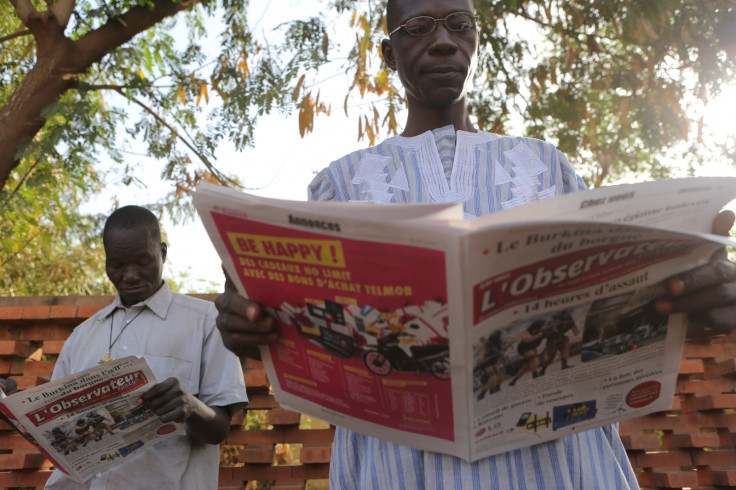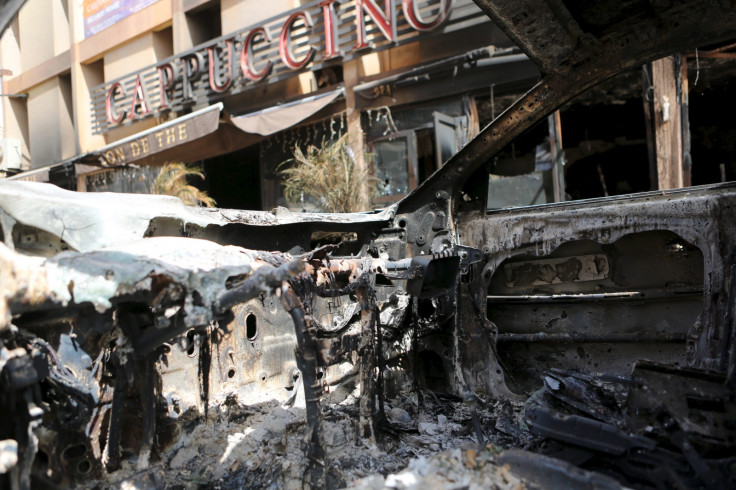Radical Muslim preacher Malam Ibrahim Dicko wants to rebuild the Peulh kingdom in Burkina Faso
IBTimes UK looks at Malam Ibrahim Dicko the Islamist preacher believe to be behind attacks.

Burkina Faso's northern province has been rocked by reprisal attacks carried out on New Year's Eve by commandos linked to radical Muslim preacher Malam Ibrahim Dicko and his al-Qaeda affiliated religious group.
The January 2016 attack on the luxury Splendid Hotel and restaurant, in Burkina Faso's capital Ouagadougou, which was claimed by groups affiliated with al-Qaeda in the Islamic Maghreb (AQIM), sounded a warning that Islamist terrorists were moving into previously untouched parts of Africa. Indeed, it was Burkina Faso's first terror attack, and the first time that AQIM-linked groups had launched an attack of this type outside their bulwark in northern Mali.
As terror groups seek to gain exposure in the Sahel, a new face has appeared, Preacher Ibrahim Dicko. Local media report the cleric, in his forties, has one goal: reconquering and rebuilding the ancient Peulh kingdom, called Djeelgodji, lost through French colonisation during the late 19th century.
Formerly known as the Upper Volta, between 1896 and 1960 Burkina Faso was part of French West Africa, a grouping of French colonies including Mauritania, Senegal, now-Mali, French Guinea, Ivory Coast and Niger.
Initially dedicated to the "promotion of the word of God", Ibrahim Dicko began preaching on local radios in 2012 in the Soum Province's capital Djibo, a dusty town located around 125 miles north of Ouagadougou, and around 28 miles from the frontier with Mali. His family is originally from a village in the Togol deparment, in the Soum province of the Muslim-majority country.
After the recognition of its movement by the authorities, he sought to extend his organisation known as Ansar-ul-islam lil-ichad wal jihad (IRSAD) through meetings and ongoing preaching on local radio, especially important in a region with higher illiteracy rates and isolated communities.
Local residents who listened to him say that Ibrahim Dicko advocated a radical Islam. On marriage, for example, he said he was against parties and musical entertainment. According to Burkinabé journalist Ibrahim Zalle, the preacher's doctrine "was variously appreciated". "But, in spite of the tone of his speech, he gained more and more adepts every day. Thus he was able to build a mosque and a Koranic school where he gave his teachings".

Malam Ibrahim Dicko and Mali's radical preachers
Despite the radical nature of his sermons, he was not investigated by authorities, according to Burkina Online newspaper.
In 2015, the preacher crossed into neighbouring Mali where he is understood to have met with Amadou Koufa, another radical preacher. The cleric, originally from Mali's Mopti region, is described as a close ally of the leader of Islamist group Ansar Dine and leader of the Tuareg Rebellion, Iyad Ag Ghaly. Both men are known for their desire to impose Sharia law and wage a holy jihad.
The same year, Ibrahim Dicko was arrested in Mali and detained for the illegal possession of firearms, according to local reports, which described how the Burkinabé preacher is understood to have paid a large caution before he was released. Koufa, who goes by his nom de guerre Amadou Diallo, is wanted by the Malian authorities.
Ibrahim Dicko returned to his Djibo stronghold after his release, divorced one of his two wives, sold his piece of land and moved to a village in the north Malian desert, where he is allegedly training his followers to use of weapons and spreading his ideology, still according to journalist Zalle. The journalist explains that several of his devoted supporters followed him, where they also undergone training.
The preacher claimed responsibility for the December 2016 terror attack on an army outpost in Nassoumbou, Burkina Faso, that left 12 dead. The troops were part of the anti-terrorist battalion deployed in 2013 to counter the jihadist insurgency near the porous borders of Mali and Niger.
Burkina Faso's northern province was rocked again by reprisal attacks carried out on New Year's Eve by commandos linked to the preacher, after two commandos carried out simultaneous attacks against individuals believed to have deserted his group. At least one person was killed, and another critically injured.
While these attacks were the second on Burkinabé soil, Benjamin Nickels, academic chair for Transnational Threats and Counterterrorism at the Africa Center for Strategic Studies, believes the recent violence may not shape prospects of a domestic terrorist threat emerging.
"The attack does not indicate or suggest the likely rise of a significant domestic terrorist threat coming from within Burkina Faso. If anything, the violence in Ouagadougou will likely further discredit AQIM and similar groups among ordinary Burkinabé," he said in an analysis.
"The recent attacks and kidnapping [of Australian surgeon Kenneth Elliott and wife Jocelyn] were externally based and akin to an incursion. That said, vigilance about possible indications of radicalisation and recruitment within Burkina is also merited."
© Copyright IBTimes 2025. All rights reserved.






















